The Unveiling of Winter and a Land Hopeful with the Milk of Flowers
Monthly Newsletter | Devon, UK, February 2023
The monthly newsletters are an amalgamation of musings, two poems (one by me and one by a published poet, as per a practice introduced to my master’s cohort by poet Alice Oswald) and upcoming course announcements.

Winter has been long this year. She seems to have seeped into the crevices of everything, liquid dark and thick like honey. In these parts of the British Isles, she is known as the Veiled One, Queen of Winter, the Great Old Woman of the Deer, Wife of Thunder, the Crone; she is the Cailleach, meaning “hag” or “old woman” in Gaelic. In other cultures she will have other names that would do us good to remember.
The Old Lady of Winter wrapped Devon in her furs on sundown of December solstice and has been whispering through branches bare but for red bursts of winter berries ever since. We might catch a glimpse of her, dressed in white and flying across the sky on the back of a wolf, or crouched in frosty fields milking deer. And it is said that when babies are born, the Cailleach touches the small of their back to lengthen the time before walking - she knows to prolong certain periods of struggle. And though there is a popular wish to fast-forward to warmer seasons, miracles find fertile ground in the terrains of the Cailleach when we let her have her way with us.
The entire fortnight that I was away in the Balkans, it felt like my body was in battle against some virus or other; a battle that I eventually lost. A friend wrote to me during one of the harder days quoting Rilke:
‘Just bear in mind that sickness is the means by which an organism frees itself from what is alien; so one must simply help it to be sick, to have its whole sickness and to break out with it, since that is the way it gets better.’
Seeing discomfort as an ally is befriending the Cailleach. It is welcoming a bounty that is less obvious, rough, and often wrapped in thorns.
Befriending the Cailleach is understanding that gifts often come disguised. Though Pandora is often remembered as the woman who released all evil into the world, her name in fact means “All-Gifted.” She is the Greek Eve, first woman made of clay by the gods and understood to be the cause of the Fall, bringing eternal misery to the human race by allowing her curiosity to open a box that contained all manner of evils. She brought an end to the summery paradise and from her small vessel flew troubles and woes—sorrow, disease, vice, violence, greed, madness, old age, death… To this day, we use the metaphor “Pandora’s Box” to refer to a source of endless troubles and unfortunate events.
But what are these troubles, really?
As is often the case, this interpretation of Pandora’s story is fairly recent. Erasmus, the Renaissance philosopher and Catholic Theologian, either mistranslated the word “box” or mistook it for the box in the story of Psyche and Eros. Originally, the box was actually a jar. And rather than being the source of all evil, it was understood to be a vessel of blessings.
This is what I understand from sitting at the foot of the Cailleach.
Her season brings illness, cold, discomfort… And winter no doubt represents a symbolic death. But initiatory teachings tell us that we must learn how to die to fully live. Under the Veil of the Cailleach we might find a den where our animal body can take rest, and in this period of incubation our heart can regenerate and be renewed. It is under her Veil that we might allow the ravens and crows to peck at our old skins so that we can return “to the bones” of ourselves. And begin again.
From winter solstice until the spring equinox, we are in the domain of the Cailleach. But on the first of February, new life begins to stir again as Brigid, Lady of Spring, starts to wake from her slumber on Imbolc, the middle of winter within the Celtic Wheel. She is the counterpart of our Old Lady Winter, and her name means ‘The Exalted One’, deriving from the Proto-Indo-European root word for “to rise”. Images of resurrected deities come to mind, like Osiris, Dionysus, and Yeshua, or Jesus, along with their rites of regeneration that are amongst the oldest mysteries and spiritual traditions.
Now, at this half-way point between the descent of winter and the coming of spring, life stirs beneath the surface of ourselves, reminding us that the light will be born again. Just not yet; not quite yet.
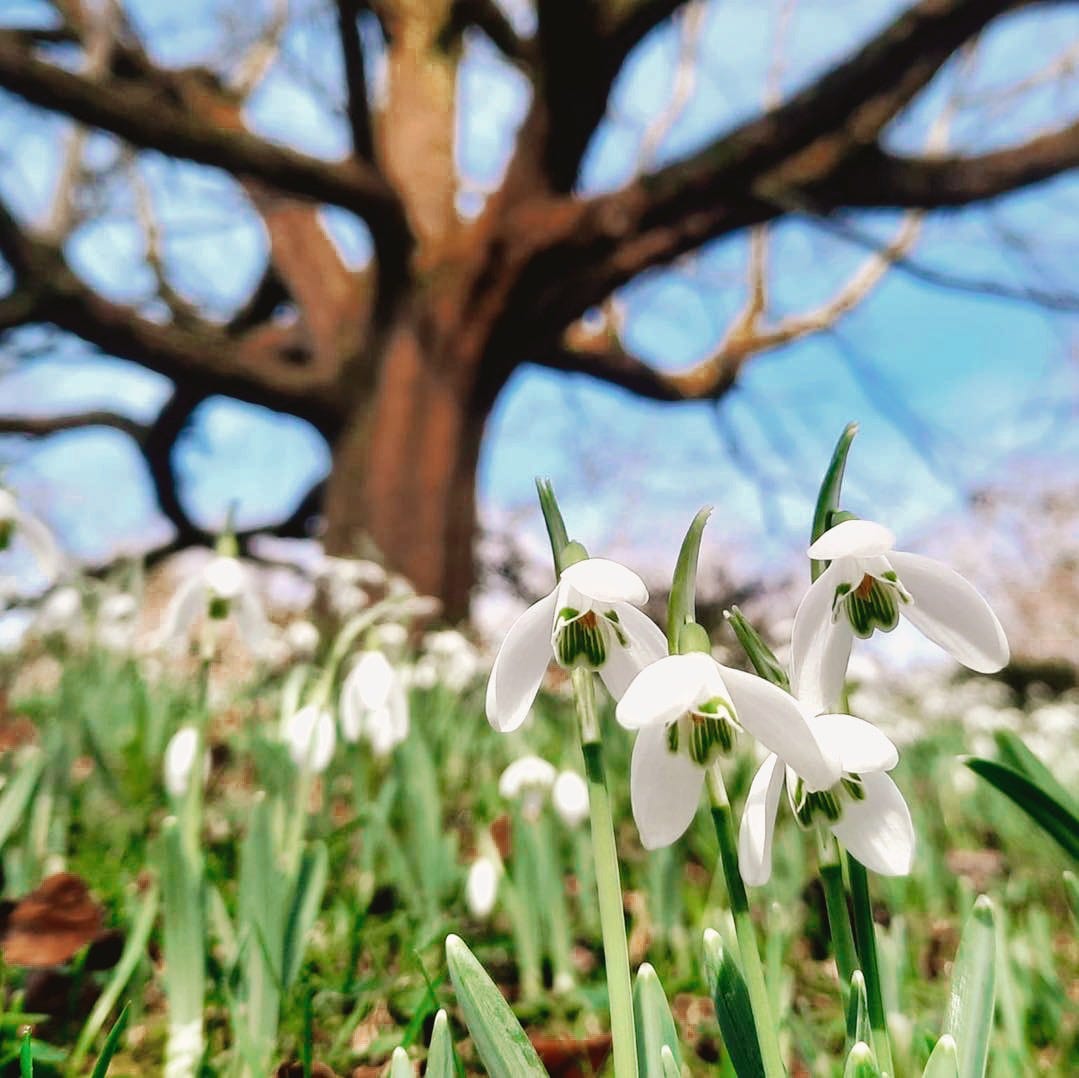
We often try to speed up the process of discomfort. But we can’t rush the timing of the Underworld. The stirrings of spring are another reminder to drop a little deeper and to remember that we get out what we put in. As Joseph Campbell found in his study of the inner journey, when we take one step towards the gods, they take ten towards us.
The next six weeks leading up to spring equinox are an opportunity to notice where we’ve dropped the ball. To be radically honest with ourselves and see what remains to be shed in the dark warmth of our hibernatory den. What are the final skins to be delivered to our winged companions? So that, when we emerge from our sojourn in the Underworld, with all its gifts of blessings rough and wrapped in thorns, we might emerge in a new shape, unveiled and brimming with the milk of new flowers and, as Martin Shaw would say, with an altar built in our heart for the bird that flew away.
Poetry Offering
I read this first poem during a small and intimate gathering with friends last night and would like to share it with you, too. Excerpt from 'The Winter of Listening', by David Whyte River Flow: New and Selected Poems What is precious inside us does not care to be known by the mind in ways that diminish its presence. What we strive for in perfection is not what turns us into the lit angel we desire. What disturbs and then nourishes has everything we need. What we hate in ourselves is what we cannot know in ourselves but what is true to the pattern does not need to be explained. Inside everyone is a great shout of joy waiting to be born. And here in the tumult of the night I hear the walnut above the child’s swing swaying its dark limbs in the wind and the rain now come to beat against my window and somewhere in this cold night of wind and stars the first whispered opening of those hidden and invisible springs that uncoil in the still summer air each yet to be imagined rose. This next poem is from a collection of poems I'm currently writing inspired by morning swims in the river Dart over the course of the past year. I Want to Open I want to open, but even the river grants entrance to her eager swimmers only after first bearing her teeth, jagged and cold and sharpened by winter. Even the river benign and soft on her surface, pierces the fibre of being and flesh still warm from dreaming; grips steady, steadfast until I am full of holes, my body a watering can leaking, but open; finally open. I become an otter who, caught in the hunt and worn out from all that running, submits to the teeth of fate. You see, even the river knows that there is no opening without a little gnawing from callous teeth.
Announcements
Upcoming Online Courses
MARCH 3 - Seeing in the Dark | 3-Week Course | Fridays, 5 - 7pm UK
APRIL 7 - Gnosis | 1-Month Course | Fridays, 5 - 7pm UK
Upcoming Online Monthly Gatherings
LAST SUNDAY OF THE MONTH - Dismemberment | 5 - 6:30pm UK
EVERY NEW MOON - Embodiment | 5 - 6:30pm UK
ONCE A SEASON (Upcoming: Spring Equinox) - Oracular Guidance | Not Live

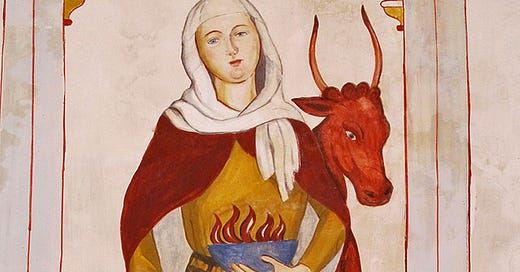


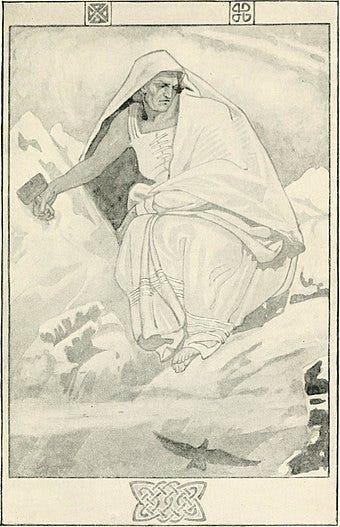
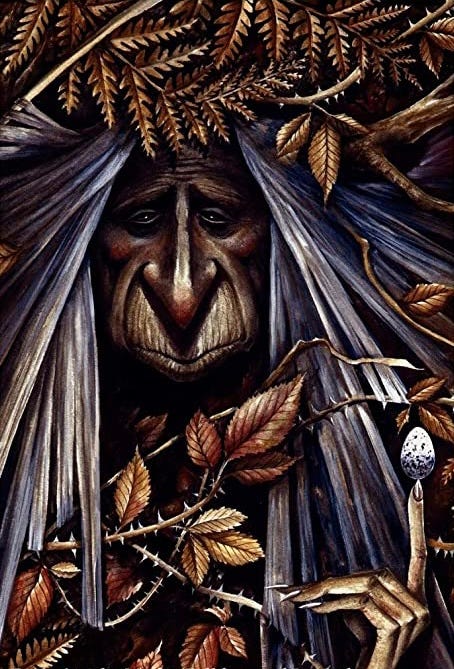
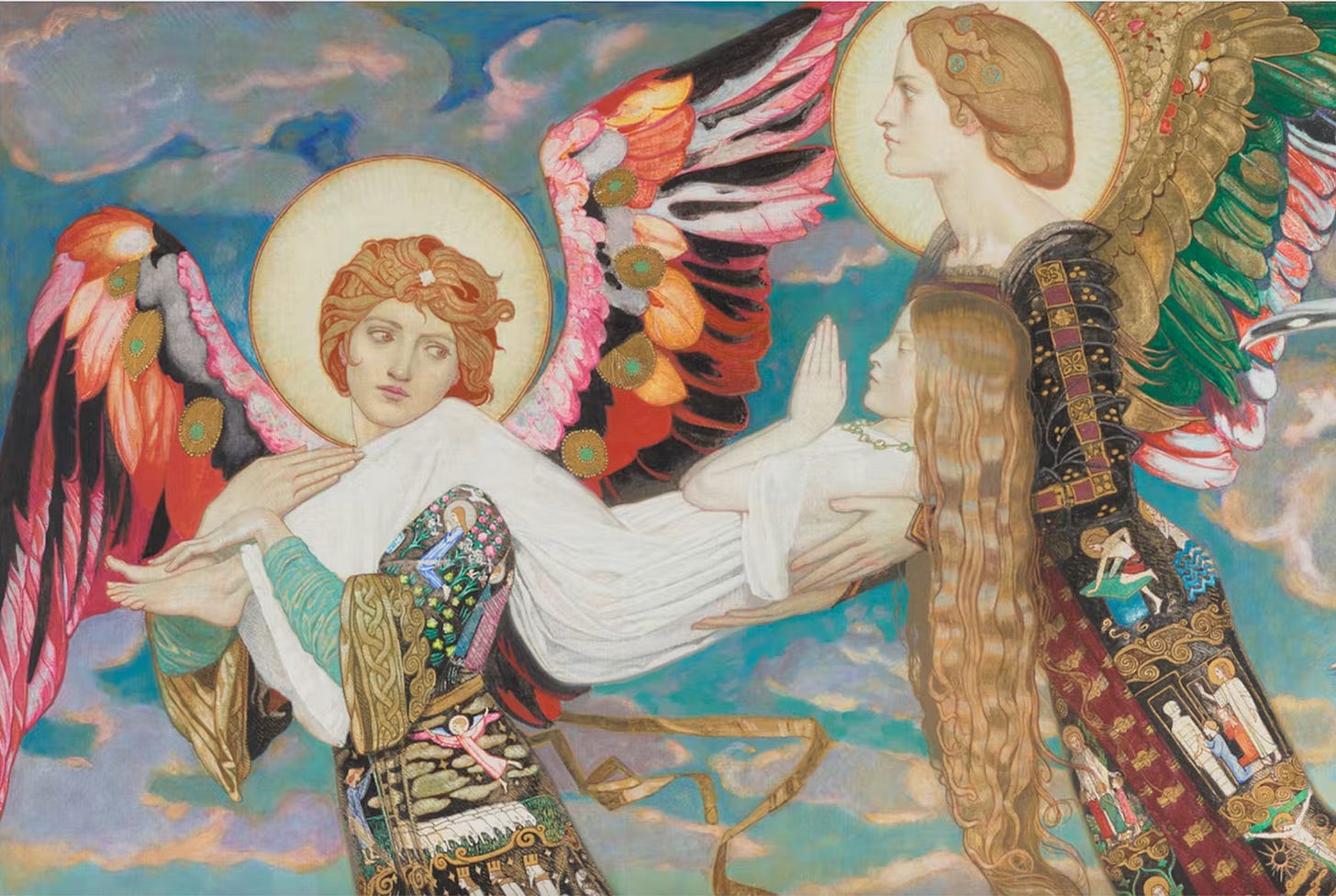

So interesting. I’m currently suffering from a cold and the winter blues. Trying to see this as a positive and necessary stage before bursting into spring. X